In today's fast-paced world, where customer satisfaction is paramount, the role of artificial intelligence (AI) in customer service is rapidly expanding. As someone deeply embedded in this industry, I’ve witnessed firsthand how AI-powered solutions, particularly voice AI, are revolutionizing customer interactions. Let me take you through the landscape of AI in customer service, highlighting the advancements and use cases that are making a significant impact.
The Rise of Voice AI in Customer Service
Voice AI, encompassing technologies like text-to-speech (TTS), speech recognition, and natural language processing (NLP), is at the forefront of transforming customer support. These tools are not just about automating repetitive tasks but enhancing the overall customer experience by providing real-time, personalized assistance.
Automating Repetitive Tasks
One of the primary benefits of voice AI is its ability to automate repetitive tasks. For instance, interactive voice response (IVR) systems have been around for a while, but with the integration of AI, they have become more sophisticated. Modern IVR systems use natural language understanding (NLU) to comprehend and respond to customer queries more effectively. This functionality significantly reduces wait times and improves customer satisfaction by swiftly addressing their needs.
Enhancing the Customer Journey
Generative AI and conversational AI are game-changers in creating more engaging customer journeys. With these technologies, voice assistants and chatbots can handle a wide range of customer interactions, from answering frequently asked questions (FAQs) to providing detailed information about products and services. This not only enhances customer engagement but also allows human agents to focus on more complex issues that require a personal touch.
Here’s top 5 use cases for text-to-speech APIs in customer service
- Automated Phone Calls: Use text-to-speech APIs to handle phone calls, providing customers with automated responses and information. This improves efficiency and availability, especially for common queries.
- Self-Service Portals: Implement text-to-speech in self-service portals to guide customers through troubleshooting steps, FAQs, and other support resources. This reduces the need for live agents and enhances customer experience.
- Transcription Services: Use text-to-speech APIs to convert transcription of customer interactions, such as call logs and chat transcripts, into audio files for review and training purposes.
- Social Media Integration: Integrate text-to-speech APIs with social media platforms to provide audio responses to customer inquiries and comments, making interactions more dynamic and accessible.
- Interactive Voice Response (IVR) Systems: Enhance IVR systems with text-to-speech technology to offer personalized and natural-sounding interactions, guiding customers through menu options and services without human intervention.
These use cases demonstrate how text-to-speech APIs can significantly improve customer service operations by automating responses, enhancing self-service options, and integrating with various communication channels.
Practical Use Cases of Voice AI
Let’s delve into some practical use cases where voice AI is making a substantial difference:
Call Centers and Contact Centers
In call centers and contact centers, AI-powered voice bots are revolutionizing the way customer support is provided. These bots can handle high call volumes, efficiently manage customer queries, and even assist in scheduling appointments. By automating these interactions, call centers can operate more efficiently, ensuring that callers receive timely and accurate information.
Customer Support Apps
Many companies are integrating voice AI into their customer support apps. This enables customers to interact with virtual assistants using natural language, making the process more intuitive. These apps can provide instant responses to customer queries, guide users through troubleshooting processes, and even escalate issues to live agents when necessary.
Interactive Voice Response (IVR) Systems
AI-enhanced IVR systems are capable of understanding complex customer needs and routing calls to the appropriate department or agent. This reduces the frustration associated with traditional IVR systems, where customers often had to navigate through a maze of options.
Benefits of Voice AI
The benefits of integrating voice AI into customer service are manifold:
Improved Customer Satisfaction
By providing quick and accurate responses, voice AI significantly boosts customer satisfaction. Customers appreciate the convenience of getting their issues resolved without long wait times or being transferred multiple times.
Increased Retention
Happy customers are more likely to remain loyal. By enhancing the customer experience through personalized and efficient service, companies can increase customer retention rates.
Cost Savings
Automating routine tasks with voice AI reduces the need for extensive human resources, leading to significant cost savings for businesses. This is particularly beneficial for large enterprises with high call volumes.
Enhanced Customer Data Utilization
AI technology allows businesses to analyze customer interactions and gather valuable insights. This data can be used to improve products, services, and customer support strategies, ultimately driving better business outcomes.
The Future of Voice AI in Customer Service
As AI technology continues to evolve, we can expect even more advanced voice AI solutions that will further enhance customer support. Generative AI, for example, is set to play a pivotal role in creating more dynamic and interactive customer interactions. Additionally, advancements in machine learning and NLP will enable voice assistants to understand and respond to customer needs with greater accuracy.
In conclusion, the integration of voice AI in customer service is not just a trend but a necessity in today's competitive market. By leveraging AI-powered tools, businesses can improve customer satisfaction, streamline operations, and stay ahead of the curve. As a co-founder in the AI space, I am excited about the endless possibilities that lie ahead and look forward to witnessing the continued transformation of customer support through voice AI.
Try Speechify Text to Speech API
The Speechify Text to Speech API is a powerful tool designed to convert written text into spoken words, enhancing accessibility and user experience across various applications. It leverages advanced speech synthesis technology to deliver natural-sounding voices in multiple languages, making it an ideal solution for developers looking to implement audio reading features in apps, websites, and e-learning platforms.
With its easy-to-use API, Speechify enables seamless integration and customization, allowing for a wide range of applications from reading aids for the visually impaired to interactive voice response systems.





